Bequest Language

Bequests
Some donors prefer to give a significant charitable gift upon their deaths—after their loved ones have been cared for. One way to fund a future gift to the foundation is through a bequest in a will.
A bequest is a statement to others about a donor's belief in the mission of MSCF and desire to give back to the community. Bequests are deductible for federal estate tax purposes.
Adding an amendment (codicil) to a will can ensure that the foundation is included.
Here’s the appropriate language to use to ensure a donor's desires are fulfilled:
“I give, devise and bequeath ____% (percentage), OR all the rest, residue, and remainder, OR $_____ (sum of money), of my estate to the Main Street Community Foundation, located in Bristol, Connecticut, USA."
A will is an important document to ensure that the people and causes a donor cares about are remembered when the donor is gone. It also avoids the time and trouble the donor's heirs will experience when probating the estate.
Types of Bequests
Percentage
This equals a fixed percentage of the value of the estate at the time of death. The percentage remains fixed, what the foundation receives will be based on the value of all assets upon death.
Residuary
This directs that the foundation receives all or a portion of the balance of the estate after all necessary costs and monetary bequests have been met. A residuary bequest is a gift of whatever remains in the probated estate. It can combine real, personal and mixed assets. If there is more than one residuary beneficiary, the residuary total must equal 100 percent, such as, “I give and bequeath one half of my estate to the Main Street Community Foundation, and one half to (named beneficiary)”.
Monetary
The designated beneficiaries receive a fixed dollar amount that will not fluctuate if the estate increases in value after the will is signed. A pecuniary bequest will not be reduced, assuming the executor has sufficient other assets to pay other expenses, debts, and taxes.




